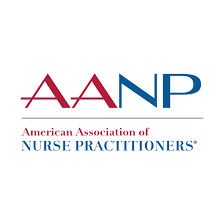Operating with the highest level of autonomy, nurse practitioners are lifelines for many patients.
This week’s designation as National Nurse Practitioner Week (November 10-16) is an excellent time to examine the roles nurse practitioners (NPs) play in the nation’s healthcare system.
The American Association of Nurse Practitioners is a leading professional organization for NPs and also leads advocacy for issues relating to NPs. A nurse practitioner has achieved an educational path that brings them to Advanced Practice Registered Nurse (ARPN) designation. That gives them essential nursing knowledge and combines it with the ability to use it in a more comprehensive manner than a registered nurse (the first step to becoming an NP).
One of the biggest challenges facing NPs today is achieving full-practice authority (FPA) in all states. Because NPs have wide-ranging responsibilities that include examining and treating patients, diagnosing illness, and prescribing medications, they often work at the level of a physician. In some states, a nurse practitioner is not mandated to work under the supervision of a physician or required to have a physician sign off on some of their treatments. In states that don’t recognize the full practice authority of an NP, that additional layer of physician sign-off is required.
A nurse practitioner is able to “hang a shingle” and operate as a solo practice in any location. Many NPs choose to do so in remote areas where practicing physicians are hard to find or in urban areas where transportation to a medical office is a barrier to care. They are a vital cog in the healthcare wheel. They often assume many of the responsibilities of a primary care physician, developing relationships and providing preventive and long-term care. They see and treat patients with chronic diseases like asthma or diabetes and work in conjunction with a specialized care team as well.
If upping your career to a nurse practitioner level interests you, there are steps to get started. NPs require a master’s in nursing (with a focus on the population you intend to serve) and achieving a PhD in nursing is desirable for this role. After becoming a registered nurse, completing the BSN and MSN, you’ll need to earn your state-level advanced practice nursing license.
While NP authority is determined on the state level, there is progress toward achieving a national model. For now, some states participate in the APRN Contract, which allows a nurse holding an APRN license to essentially have authority to practice in several states. Not all states are part of the ARPN, so you’ll need to check to see where your own practice location, or intended location, fits in.
Career outlooks for NPs are stable. As the number of family practice physicians decline and the population increases, NPs are there to help patients on a high level. They are also able to work with communities that may not have had reliable medical care in years. The freedom to develop deep and lasting multigenerational relationships with patients and families is a routinely cited reason for working in this busy role.
If you’re an NP, National Nurse Practitioner Week is a good reminder to let people know of the training and skill set required of nurses in this area of nursing. And it’s a good time to give yourself a pat on the back for all you do.
- WOC Nurses Week Highlights Specialty - April 16, 2024
- Honoring Radiology Nurses Day on April 12 - April 12, 2024
- Travel Offers New Career Possibilities - April 8, 2024



